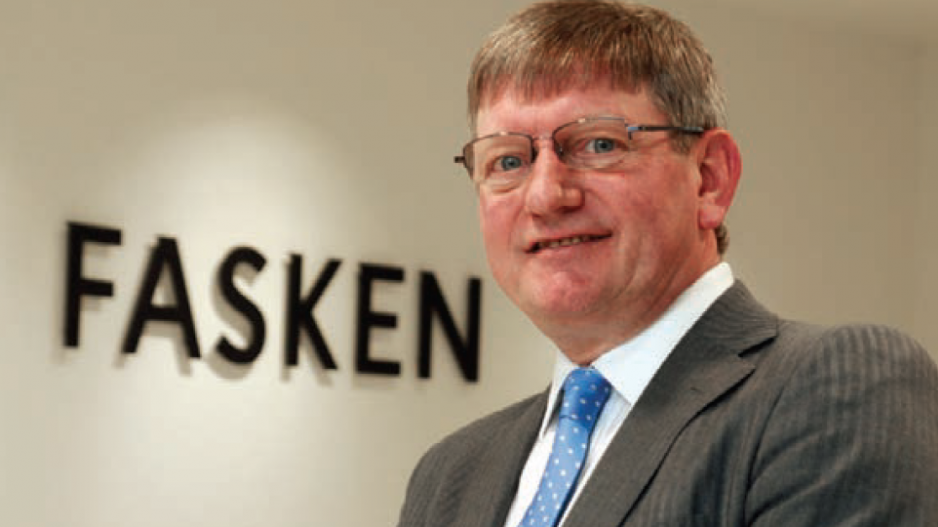The City of Surrey is hoping its low municipal tax rate for businesses will continue to attract companies to keep pace with its residential real estate boom.
The average company is paying $21,995 annually in Surrey, the second-lowest rate in the Lower Mainland behind Langley City. The average business tax rate across Greater Vancouver sits at $42,902, and Coquitlam has the highest rate ($65,963). According to Fraser Valley Real Estate Board (FVREB) 2017 data, the region sold $15.7 billion worth of real estate, the second-highest year since the area started keeping statistics.
One of the companies Surrey recently lured east to set up an office is international law firm Fasken, which has 10 offices on four continents and one in Vancouver.
William Westeringh, managing partner for Fasken’s B.C. region, said the firm picked Surrey because the economic viability of establishing a business in the city is increasing with its population.
“We’re a business law firm, so if it were just the population that was growing, and not the business sector then that would be of less appeal, just to the individual people living there,” said Westeringh. “What we’re seeing is growth in business in Surrey and in the Fraser Valley and the sophistication of services those companies are offering.”
According to City of Surrey statistics, the municipality issued more than 2,600 new business licences in 2017. The value of building permits exceeded $1.5 billion, the majority of which were in the industrial and institutional building categories. South Surrey had the largest share of the industrial growth in 2017. It accounted for 56% of the building permit values and 66% of the additional floor space in that category.
Slightly more than five million square feet of industrial space is under construction in Metro Vancouver, and more than 1.2 million of that is in Surrey. As of 2015, only 2,261 hectares of Metro Vancouver’s industrial land is vacant; 38% of that is in Surrey.
Aside from Fasken, several other companies have set up offices, headquarters or buildings in Surrey, including:
•Loblaws, which recently opened a 422,000-square-foot refrigerated food distribution centre in Campbell Heights;
•Starline Windows, the country’s largest window manufacturer, which has four facilities in the city totalling 450,000 square feet;
•G-PAK, which makes compostable Keurig-compatible single-serve coffee pods and recently received $2.5 million from Western Economic Diversification Canada to secure a 9,000-square-foot contract for a manufacturing facility in Campbell Heights; and
•DSV Solutions Inc., the world’s sixth-largest third-party logistics provider, which recently acquired a 214,000-square-foot property in South Surrey.
City of Surrey Coun. Bruce Hayne acknowledged the municipality’s building boom is being driven primarily by low residential prices compared with other Lower Mainland cities.
The benchmark price for an apartment in the Fraser Valley as of the end of December was $388,600, according to the FVREB. Within the Real Estate Board of Greater Vancouver’s catchment, the benchmark price for an apartment is $655,400.
Hayne noted the city has several bylaws to help promote sustainable development, including the Development Cost Charge Bylaw (which allocates portions of development monies for municipal use such as sewage, highway facilities and parkland) and its Neighbourhood Concept Plan which guides the development of new Surrey neighbourhoods. He said it is still a struggle to keep the various forms of development in lockstep across the city.
“As you can imagine it’s difficult to keep the job growth at the same pace as our residential growth. Some of the advantages, though that Surrey has is that we have the majority of the undeveloped industrial land left in the region, and we’re very protective of those industrial lands.”
Hayne added that the city has also instituted moratoriums on residential developments in some areas of the city while the school board plays catch-up. He said the November 2016 Supreme Court of Canada decision that reinstated class size limits across the province that were removed in 2002 has put added pressure on the local government to accelerate new school construction. Starting in the 2017-18 school year, the limits for primary classes were 20 students for kindergarten and 22 students for grades 1 to 3.
“We’ve had to put moratoriums on certain areas for developments, particularly in South Surrey,” he said, “as we wait for the school board to catch up and purchase land for schools or make announcements to build.”
According to B.C.’s Ministry of Education, there are two schools under construction in the municipality and 14 are in the design or planning phase.
Surrey Board of Trade CEO Anita Huberman noted that one of its major projects is trying to build a convention centre space in the city. She said various agencies are working together to target the Guildford mall space formerly occupied by Sears.
“We’re going to be the largest city in British Columbia, and we really need to have a convention centre,” she said. “And we’re behind the times in terms of what we can do to bring in those types of events and jobs and economic dollars.”




